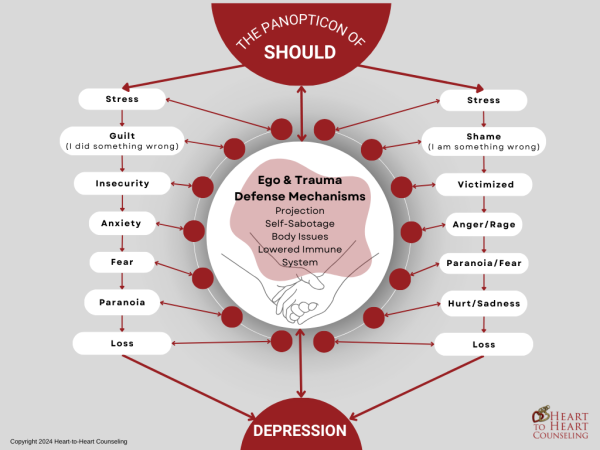How admitting, detoxifying, and resolving previous traumas can create the love, closeness, and authenticity you have always longed for.
- Have all adults experienced trauma?
- Can a person be traumatized and not know it?
- What are some of the effects that trauma has on an individual?
- In what ways might trauma affect an intimate relationship?
- Can the effects of trauma be healed, and if so, how?

The ubiquitous nature of trauma
We have learned through our research and our work with our clients that every person, by the time they reach adulthood, has experienced one or more forms of trauma. We define trauma as having had one or more experiences that frighten us, where we feel powerless in that moment to alleviate that fear. This does not mean, of course, that those traumas all impact us in the same way.
We now know that trauma comes in two different forms, one of which we call a ‘small t’ trauma, and one we call a ‘large T’ trauma. Small t traumas, even if experienced only once, can have the same devastating effects on our nervous system as large T traumas. Small t traumas can be seen as momentary or pervasive insults to our sense of self, thereby frightening us to a point where we feel powerless, humiliated, enraged, and/or ashamed. Large T traumas are those which involve severe shock and fear to the nervous system, such as physical assault, rape, natural disasters, or intense losses. Many small t traumas are experienced over a period of time. Examples include things like life experiences within a dysfunctional family environment (i.e., constant exposure to criticism, demeaning comments, and observing bouts of anger). These can have the same devastating effects on our nervous system as much as large T traumas. If left unattended and untreated, it can destroy the possibility of intimacy with our partners in adulthood.
When either small t or large T traumas are ignored, pushed out of conscious awareness, and relegated to our subconscious mind, they can morph into symptoms. We now call this Post Traumatic Stress Disorder (PTSD). These symptoms (i.e., flashbacks and subsequent experience of negative emotions, sleep disturbances, overreaction to loud noises, nightmares, etc.) create within the individual powerful challenges to their ability to feel safe and/or function in their everyday life. These symptoms can severely affect one’s ability to be emotionally open and vulnerable in their relationships, especially in their intimate ones. Therefore, it becomes urgent that symptoms are attended to immediately when they occur.
Admitting, detoxifying, and resolving past traumas is the work that is necessary to create the love, closeness, and authenticity that everyone desires. When people enter therapy, most assume that negative past experiences have little or no impact on their current day-to-day functioning and relationships. Working with thousands of individuals and couples, we have learned that nothing could be further from the truth. Previous traumatic experiences, by definition, are painful. Most people want to forget them, which leaves them unable to understand how they have been negatively impacted. By bravely acknowledging and working through the pains of one’s past experiences, the door to a new future opens up, leading to deeper emotional connections and a truer sense of self. Healing from past traumas allows one to shed the weight of emotional burdens, creating new avenues for authentic relationships built on vulnerability, understanding, and genuine intimacy.
When it comes to the prevalence of trauma, it’s crucial to recognize that each person carries their own set of experiences and struggles. Trauma, in its various forms, is a shared human experience that touches each individual differently. Seeking support and healing involves overcoming the easier and more tempting path of ‘forgetting and moving on.’ It takes both courage and determination to uproot the causes and conditions that have negatively impacted one’s ability to create a meaningful and fulfilling life. Henry Ford, the brilliant businessman who founded Ford Motor Company, stated ‘Whether you think you can or think you can’t, either way you are right’. It is ubiquitous within the human realm that we all experience some form of trauma. This being the case, we must all take the time to understand how trauma affects our lives to assist us in overcoming its devastating effects.
Take the Next Step
Contact us to learn more about our services and how we can support you on your journey toward greater emotional intimacy and fulfillment by learning about the impact of trauma on ourselves and our intimate relationships.







